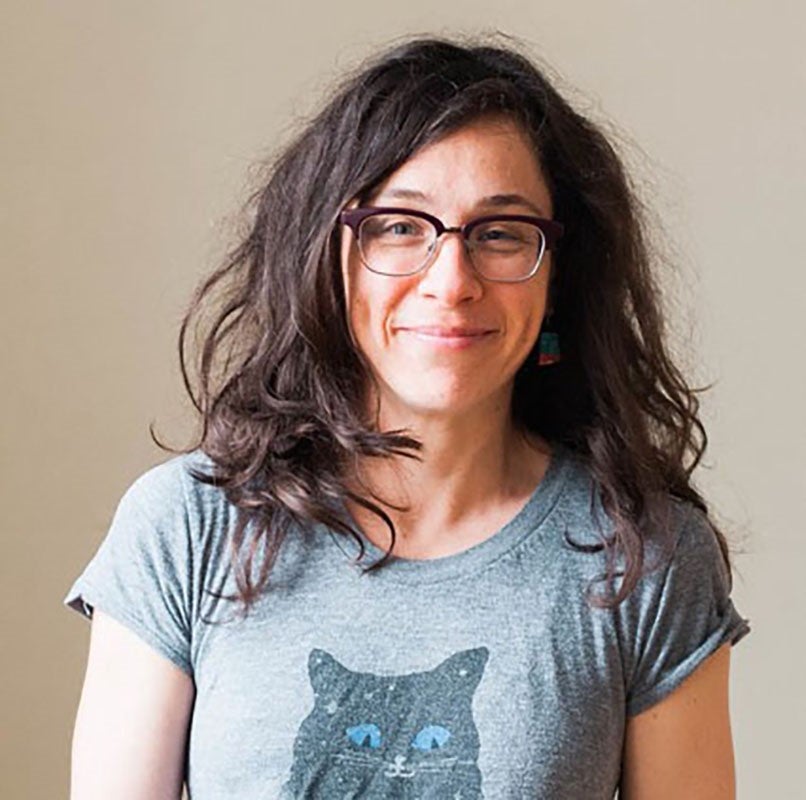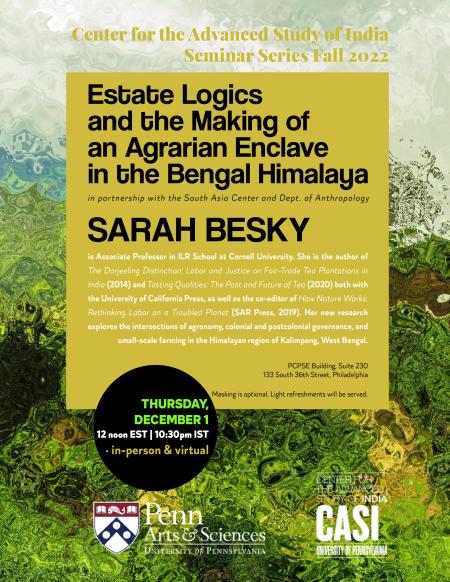Estate Logics and the Making of an Agrarian Enclave in the Bengal Himalaya
Center for the Advanced Study of India
Ronald O. Perelman Center for Political Science & Economics
133 South 36th Street, Suite 230
Philadelphia PA 19104-6215
*Masking is optional*
(English captions & Hindi subtitles available)
About the Seminar:
Raymond Williams (1973) reminds us that the “countryside,” as a singular idea and referent, does ideological work. It is a space of productivity and purity, reproduction and redemption. It is a space that makes and maintains difference and inequality. For Williams, the countryside is perhaps best evidenced in the “estate”—the manor house surrounded by a sweeping, picturesque (and, importantly, manufactured) landscape. (This may be the case for many middle-class observers too, given the wild popularity of shows like Downton Abbey and Bridgerton.)
In Sarah Besky's work with materials from colonial Bengal, she is concerned with how “the estate” traveled as a mode of colonial agrarian governance and with what effects. She describes how the “Government Estate” of Kalimpong, in the Himalayan foothills, became a food-producing agrarian enclave. The carving out of this productive enclave hinged on the management of social reproduction, from marriage to inheritance to garden aesthetics.
Ideas of the “countryside” continue to shape rural development programs in West Bengal, particularly in Kalimpong. Local production of food has collapsed, and in their wake, the state has turned the region into a site of state-supported rural “home stay” tourism. The relationships between agrarian production and social reproduction are reconfigured once again, but the estate logics, she argues remain.
About the Speaker: Sarah Besky is an Associate Professor in ILR School at Cornell University. She is the author of The Darjeeling Distinction: Labor and Justice on Fair-Trade Tea Plantations in India (2014) and Tasting Qualities: The Past and Future of Tea (2020) both with the University of California Press, as well as the co-editor of How Nature Works: Rethinking Labor on a Troubled Planet (SAR Press, 2019). Her new research explores the intersections of agronomy, colonial and postcolonial governance, and small-scale farming in the Himalayan region of Kalimpong, West Bengal.
Sarah Besky is an Associate Professor in ILR School at Cornell University. She is the author of The Darjeeling Distinction: Labor and Justice on Fair-Trade Tea Plantations in India (2014) and Tasting Qualities: The Past and Future of Tea (2020) both with the University of California Press, as well as the co-editor of How Nature Works: Rethinking Labor on a Troubled Planet (SAR Press, 2019). Her new research explores the intersections of agronomy, colonial and postcolonial governance, and small-scale farming in the Himalayan region of Kalimpong, West Bengal.

